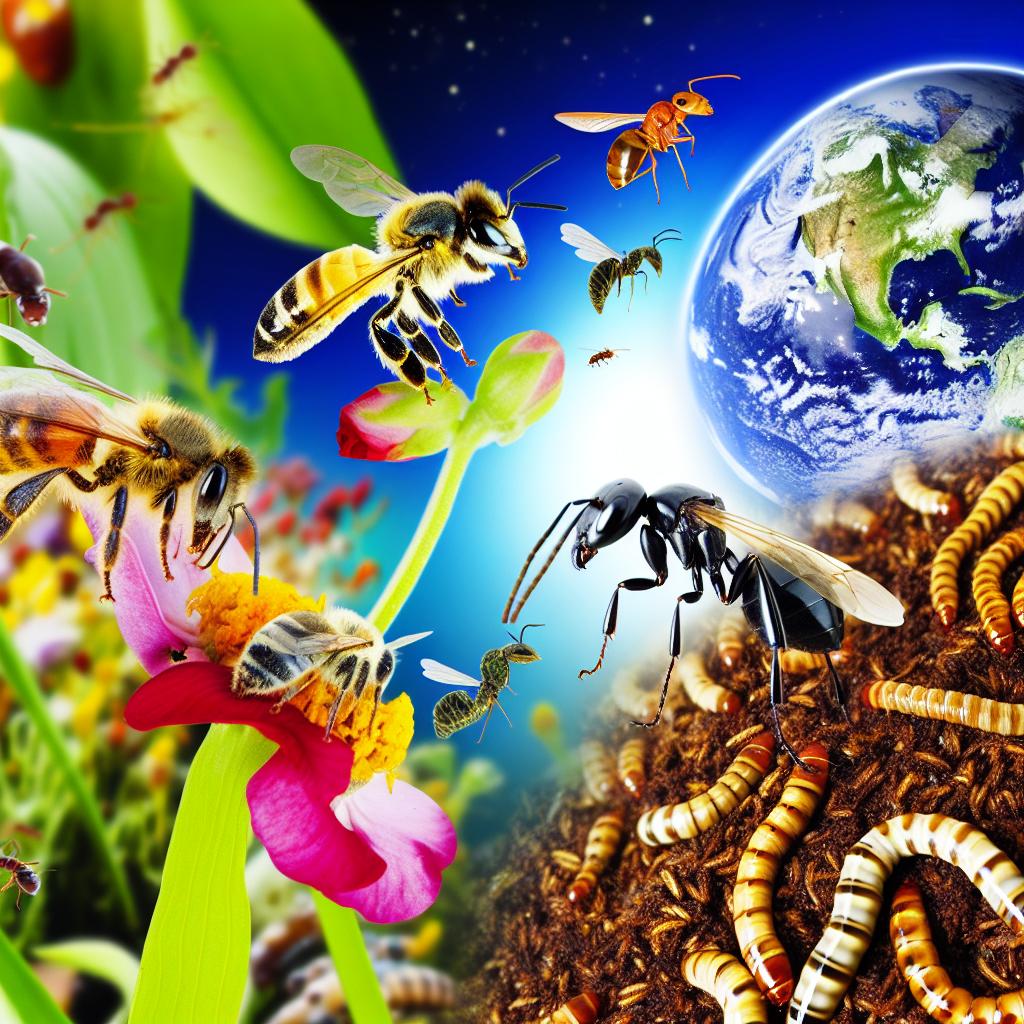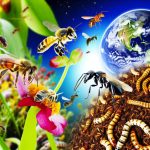The Importance of Insects in Global Food Security
The challenge of ensuring global food security is a growing concern as the human population continues to rise. Insects, often overlooked, play a crucial part in addressing this issue. They not only provide a sustainable alternative to traditional livestock but also contribute significantly to various aspects of food production and environmental sustainability.
Insects as a Nutritional Resource
One of the most significant advantages of using insects as a food source is their high nutritional value. Many insects are rich in protein, vitamins, and minerals, offering nutrients essential for human health. For instance, certain species like crickets contain nearly as much protein as beef, yet their production is far less resource-intensive. This makes them a highly efficient source of nutrition.
Insects are not just about protein; they are also an excellent source of essential fatty acids, comparable to those found in fish. These nutrients are vital for brain function and overall health, making insects a valuable addition to diets, particularly in regions where food diversity is limited. The amino acids found in insect protein are comprehensive, providing almost all the essential amino acids that humans need for optimal body functioning.
Sustainability and Environmental Impact
Insect farming offers significant environmental benefits compared to traditional livestock production. Insects exhibit a high feed conversion efficiency, which means they require substantially less feed to produce the same amount of protein as conventional livestock. This efficiency translates into reduced land and water usage, which in turn minimizes the environmental footprint of food production.
Furthermore, insects produce fewer greenhouse gases, thus offering a more environmentally friendly option. For example, mealworm production emits significantly less methane and ammonia than pig or cattle farming. This significant reduction in emissions can greatly contribute to combating climate change, which is a pressing global issue that impacts agricultural production worldwide.
Role in Agriculture and Crop Production
Insects contribute to food security not only as a direct food source but also through their roles in agriculture. Pollinators, such as bees and butterflies, are essential for the successful reproduction of numerous crops. Their absence could drastically reduce the yield and quality of a variety of fruits, vegetables, and nuts, posing a severe threat to food security worldwide.
Moreover, some insects play a crucial role in natural pest management. Predatory insects, such as certain species of beetles and wasps, help control populations of agricultural pests, thereby reducing the need for chemical pesticides. This form of biological control is crucial for promoting sustainable farming practices and helps maintain healthy ecosystems. Through the introduction of beneficial insects, farmers can achieve a more balanced and self-regulating environment that supports both crop and environmental health.
Challenges and Opportunities
Despite their benefits, the adoption of insects as a mainstream food source faces cultural and regulatory challenges. In many parts of the world, especially in Western countries, consuming insects is not a common practice. There are deeply ingrained perceptions and attitudes about insects that must be addressed. Efforts to promote the nutritional and environmental benefits of insects will be vital for changing these perceptions and increasing acceptance among the public.
Furthermore, ensuring the safe production and processing of insect-based foods requires well-defined regulations and standards. Collaboration between governments, international organizations, and the private sector will be necessary to develop and implement these guidelines effectively. Establishing a framework for insect farming can help scale up production safely and sustainably, thus paving the way for insects to become a regular part of the diet in various cultures.
Economic and Market Potential
The economic potential of insects as a food resource is vast. Markets for edible insects are expanding globally, driven by growing awareness and acceptance. The cost-effectiveness of insect farming makes it attractive not only for large-scale producers but also for small-scale farmers. This can empower communities, create jobs, and stimulate local economies while providing nutritious food alternatives.
As consumer preferences evolve, there is a potential for creating new and innovative products that cater to various tastes and dietary needs. From protein-rich snack bars to insect-based flours, the market is ripe for development. By investing in research and development, companies can harness the potential of insects and create palatable products that can appeal to a broader consumer base.
The Role of Education and Awareness
Education and awareness are crucial in overcoming the barriers associated with insect consumption. Educating the public about the environmental sustainability and nutritional benefits of insects can help demystify the concept of entomophagy—the practice of eating insects. Educational campaigns can be tailored to different demographics and cultures to effectively communicate the benefits and safety of consuming insects.
Schools, media, and community programs can play significant roles in increasing awareness and acceptance. Highlighting success stories and examples from regions where insect consumption is already integrated into the diet can also inspire confidence. Such efforts can lead to greater acceptance and normalization, opening up new opportunities for insects to be integrated into mainstream diets effectively.
In conclusion, insects offer a promising solution to enhance global food security. Their nutritional benefits, minimal environmental impact, and supportive roles in agriculture make them an important component of sustainable food systems. As research and public awareness grow, insects are likely to play an increasingly significant role in addressing the global food challenge. The journey towards widespread acceptance and integration of insects into the global food system is a promising endeavor that holds the potential for substantial benefits to human health, environmental sustainability, and economic prosperity.


